#terry/dahlia
Explore tagged Tumblr posts
Text
Obsessed with characters who portray themselves as worse than they are. Who are lying to everyone including themselves about it. People generally assume if someone's lying about themselves they're trying to look better but sometimes they're trying to look worse. They attribute agency to where they had none, add intent to accidents, try to convince everyone that this is something they did instead of something that happened to them.
#this is about tenko bnha#but it is also about dahlia ace attorney#watch the nezumiVA videos on ace attorney trilogy they're great#anyway dahlia saying she (at like. 6 years old) apparently convinced her father to abandon her sister. hmmm#also everyone including herself thinking of her as the manipulator in control with terry when she was 14 dating a 20 y/o#anyway these characters both did do terrible things but feel the need to pile on more and remove nuance from where it exists#to convince themselves that this is what they really want. that they chose this.#it's about the loss of control it's about being a victim feeling worse than being a villain#at least if you were the bad guy you had autonomy#shimura tenko#shigaraki tomura#dahlia hawthorne
57K notes
·
View notes
Text
I might make a couple people mad but "Terry Fawles was an intellectually disabled man that Dahlia Hawthrone took advantage of." and "Fawles' relationship with Dahlia was horribly inappropriate and she was right to distrust him" are two statements that can coexist.
#ace attorney meta#ace attorney#dahlia hawthorne#i see a lot of dahlia defenders ignore terry's disability but i think we can hold fawles accountable without erasing that fact#as an autistic AA fan i find Fawles to be a shitty stereotype but i find the erasure of his disability to be worse
250 notes
·
View notes
Text
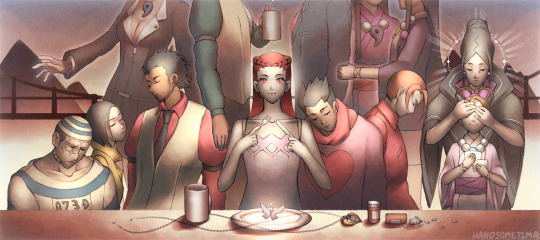
last supper (2022)
#ace attorney#dahlia hawthorne#terry fawles#valerie hawthorne#mia fey#prosecutor godot#diego armando#phoenix wright#doug swallow#sister iris#maya fey#pearl fey#misty fey#my art
327 notes
·
View notes
Text
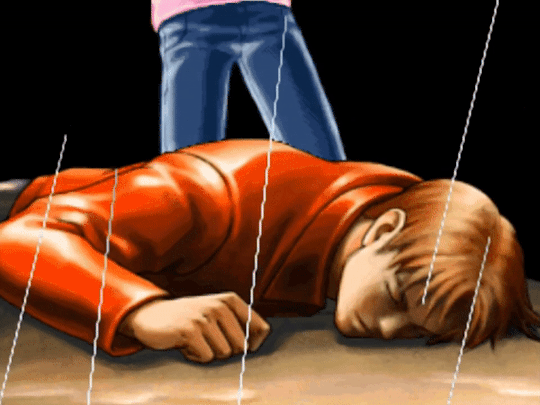
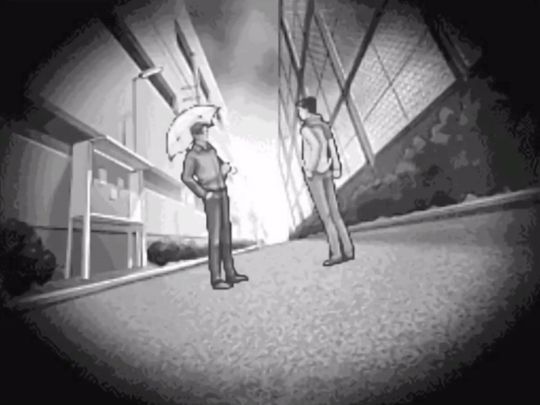

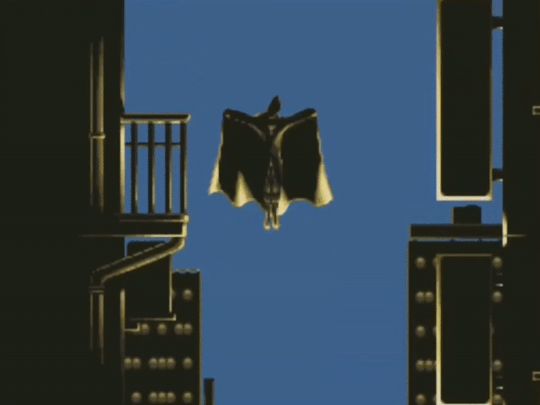
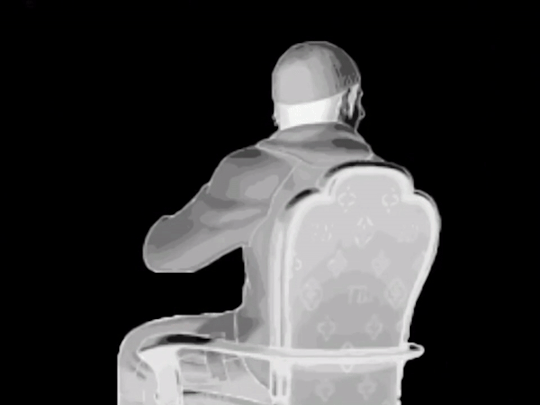


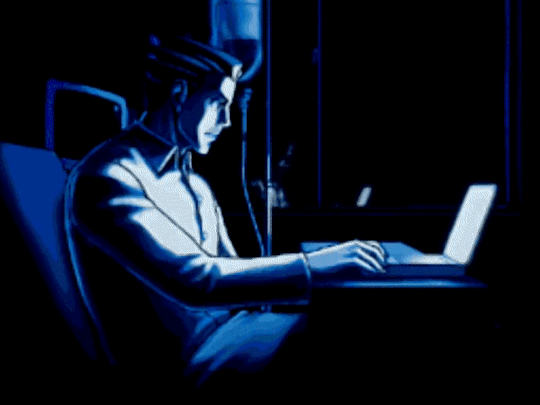
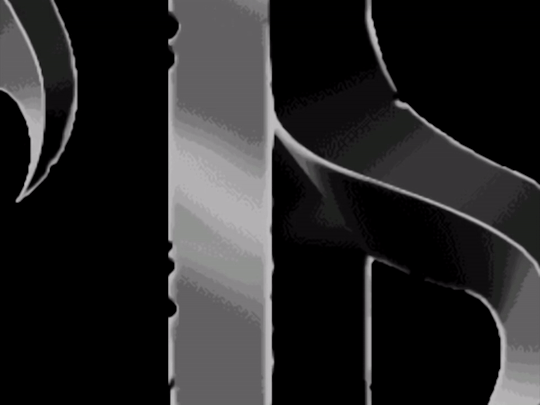

Phoenix Wright: Ace Attorney Trials and Tribulations (2004)
Turnabout Memories The Stolen Turnabout Recipe for Turnabout Turnabout Beginnings Bridge to the Turnabout
#ace attorney#phoenix wright ace attorney trials and tribulations#trials and tribulations#gifset#aa3#figtreegif#phoenix wright#turnabout memories#the stolen turnabout#recipe for turnabout#turnabout beginnings#bridge to the turnabout#doug swallow#mask demasque#ron delite#luke atmey#glen elg#furio tigre#valerie hawthorne#terry fawles#dahlia hawthorne#misty fey#elise deauxnim#game boy advance#nintendo ds#video games
308 notes
·
View notes
Text
“HELLO!!!! And welcome to the Golden Shores Beach Day Awards Ceremony! Today we’ve had some AWESOME competitions running throughout the day, some that weren’t even planned, but we were so impressed we just had to shout a couple of you out!” -🐭
“This feels similar to what the kids would call bullying-” -✨
“But in a kind and rewarding way of course because we’re so proud of everyone’s joyous nature today!” -🐭
*Ellen rolled her eyes. Today was a shit show and anyone with eyes could tell that. Someone literally died and the High Seraphim who was supposed to be doing awards was no where to be found. Not to mention that… person Seraphim Adina was running around with for half the day was definitely a sinner. And honestly, there were several other halos that were suspect throughout the day as well! Calling attention to it would have caused a panic though so she let it slide but seriously? Joyous nature Penelope?*
“There were several moments we’ll be highlighting, so keep those clappers warm and ready to get to applauding! Today was a great day!” -🐭
“First we’d like to congratulate all of the sandcastle builders. There were 76 entries this year! Thats the most we’ve ever had compete during this event, and the competition was hot! With over six thousand votes turned in, it’s a surprise we even got the votes all tallied up in time!” -🐲
“Would have been a lot harder if you hadn’t set half of them on fire, but what do I know?” -✨
“Please, when you’ve been called, come to the podium to be recognized and receive your award. So without further ado, third place belongs to… number 34, Dahlia!” -🐲
“Our second place was a tight win, only a little over thirty more votes seperately these two placements! Second place was… number 33, Delia!” -🐥
“Our first place winner was an absolute landslide. This sand castle was entered a bit later in the day but still managed to get quite a lot of attention for their scenes from the skies! This castle was a masterpiece coming from an unsuspected source. With a tallied vote of 1256 votes, the winner of the sandcastle building competition is… number 68, Shamira!” -🐭
*Ellen remembered counting votes and laughing as she sorted through the paper slips. At least a third of them were all in Emily’s flowing cursive. But honestly, she loved Emily and if she was willing to turn in over 300 votes for the guardians castle, she would gladly count them. Even if said guardian would have won without any of them*
(( @exorcist-dahlia @exorcist-delia @askshamass ))
#joy team™️#ellen ✨#duckton 🐥#Penelope 🐭#beach ep#lutualverse#Terry 🐲#exorcist dahlia#exorcist Delia#servant shamira
26 notes
·
View notes
Text
mia is stronger than me because if my first courtroom experience included a guy that was lowkey a misogynist calling me kitten, the prosecution being an annoying smug bitch, dahlia, and the defendant being a pdf file i wouldve killed myself
#oh and the defendant died i guess#ace attorney#mia fey#diego armando#miles edgeworth#dahlia hawthorne#terry fawles#my stuff
49 notes
·
View notes
Text
so I've been playing the Phoenix Wright: Ace Attorney trilogy and I just finished Turnabout Beginnings and I have. complicated feelings about it, and over all I don't think it handled the subject matter very well but I have some hot takes. I think it's very much kind of a Everyone Here Sucks situation (and that's part of where I think the writing fails, it tries too hard to make you feel bad for Terry to try to maximize the tragedy to the point were it feels like it's completely excusing his role in things), but frankly I think the person who is perhaps the most to blame for how everything turned out is actually Valerie Hawthorne. I feel like she's the one who ultimately made Dahlia the monster she would become. Terry should have realized how grossly inappropriate his relationship with Dahlia was, obviously, and I think he's a predator for dating a 14 year old, though I also think that during the trial the now 19 year old Dahlia was definitely manipulating him as well, but frankly? I think she learned that from Valerie. Valerie of all people should have recognized what Terry was doing to Dahlia was wrong and helped Dahlia get out of that situation safely, but instead I believe she was the ultimate mastermind behind the fake kidnapping, she used that bad situation and risked her sister's life for money, you can not convince me that after all was said and done Valerie didn't see any of that money. she manipulated both of them, I think. just because she got cold feet 5 years after the fact (and probably after spending most if not all of her share of the money) does not absolve her of her role in all this. she didn't even realize the kind of monster she had taught her sister to be, and that's why she sealed her own fate by trying to betray Dahlia. she taught Dahlia to be ruthless, she taught her to get rid of people who stand in her way, she played a crucial role in shaping Dahlia to become the coldhearted killer she'd grow to become, even if it was unintentional. Valerie earned that knife in her back.
#ace attorney#cw pedophila mention#dahlia hawthorne#valerie hawkthorne#terry fawles#honestly I'm mostly just making this post bc I have complicated feelings and I need to vent them#aa3 spoilers
9 notes
·
View notes
Text
Wait am I missing something??? Playing turnabout beginnings and he’s 25, says 5 years ago he and his girlfriend planned the kidnapping. Didn’t they mention the victim being 14?????? Am I going insane?
13 notes
·
View notes
Note
Question about The Hawthorne Sister's swap au, how does everything with Valerie and Fawles go down? Also what are the two's thoughts on Phoenix?
I believe events play out similarly to canon… up to a point. Iris kills Valerie not out of feeling betrayed, but because she feels a moral superiority and that it is her duty to see her sister be punished for her “sins” (the theft, faking Iris’ death, wanting to turn Iris in… etc)
She isn’t betrayal motivated like Dahlia was… very focused on that innate “moral high ground” that she has where she justifies everything she does as for the greater good. Much like Dahlia, she gets away with her crimes with how innocent and sensitive she is. Except she isn’t acting, she’s just Like That.
Fawles will still kill himself with poison, feeling guilty over taking advantage of Iris. That is how he sees the situation, after all. Iris can’t do any wrong, so it really must have been his fault. The poison itself was a gift from Dahlia, who used it to try and help out her sister, explaining to Fawles that if he ever hurt her, he best use it. This is about the closest Dahlia gets to committing murder herself in the swap AU. All she wants is to protect her sister.
Iris loves Phoenix genuinely, but in a sick, obsessive way. She idolizes and glorifies every aspect of him… even though they don’t really date as she and Dahlia still swap places! Dahlia however ofc had to disguise as Iris and date Phoenix for a while and she absolutely hated how sappy and sweet he is. He reminds her of Iris, almost, and it’s sickening.
When Dahlia and Phoenix meet again in BTTT, she’s rather cold and hostile, which throws Phoenix off because now he’s like… well maybe that isn’t the sweet girl I dated after all. And he's kinda right! Dahlia's sweetness is only an act! Even though they were in fact dating.
#phoenix.txt#gasks#hawthorne swap au#ace attorney#sister iris#iris hawthorne#dahlia hawthorne#phoenix wright#valerie hawthorne#terry fawles
9 notes
·
View notes
Text

15- The Devil
previous card
next card
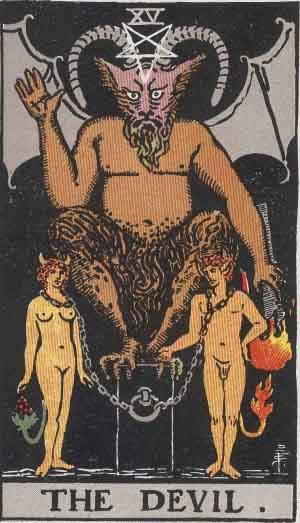
#ace attorney#trials and tribulations#dahlia hawthorne#phoenix wright#terry fawles#feenie#fanart#my art#digital art#tarot art#op#art#major arcana#the devil tarot#aa tarot#the worm draws#really like the background#i tried a bunch of different stuff before settling on this onr
28 notes
·
View notes
Text
Just finished Turnabout Beginnings and my experience was essentially
"Okay, first we deal with this bitch and then we're going to address the fact you were dating her when she was fourteen and you were twen- WHY WOULD YOU KILL YOURSELF FOR HER BENEFIT???"
#ace attorney#aa spoilers#terry fawles#dahlia hawthorne#like yeah maybe the legal system should keep an eye on him#but not for murder and kidnapping reasons
2 notes
·
View notes
Text

Dear Curious Court Researcher,

Edgeworth was completely beside himself after that case. He was new, so I decided to let him work a few cases with me before taking on his next one.

I would have known she murdered her sister and given her two choices: either come clean and allow me to prosecute her or I can return Mr. Fawles back to his little cell, the whole murder would be played as an accident, and everyone would forget about this whole thing.
- Manfred von Karma
#Anonymous#Manfred von Karma#Miles Edgeworth#Dahlia Hawthorne#Terry Fawles#Valerie Hawthorne#Ace Attorney#Mod Commentary#Can't say if this would go the way MVK says but he would certainly be doing a lot of corruption
11 notes
·
View notes
Text
Listen I'm no Dahlia fan (other than as a character, she is an excellent character and I like her narrative effect) but
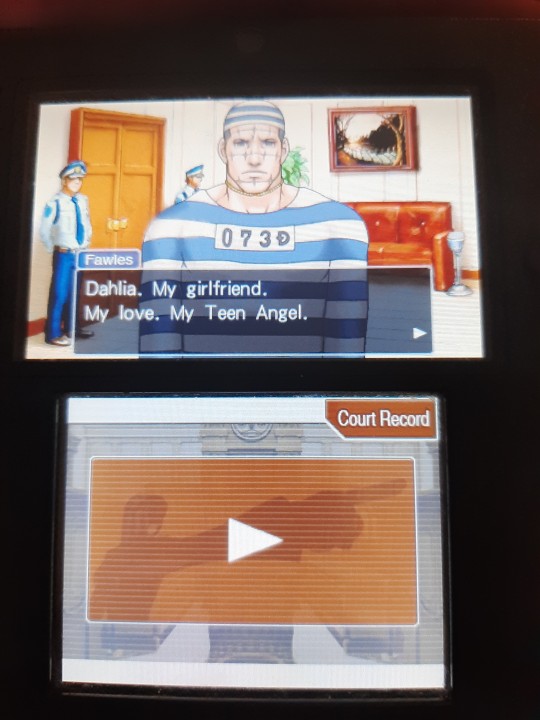
Sir you were 20 and she was 14. Jail for you. I no longer want to defend you. Miles can have the case.
#ace attorney#dahlia hawthorne#turnabout beginnings#terry fawles#ace attorney trials and tribulations
39 notes
·
View notes
Text
SPOILERS FOR ACE ATTORNEY !!!!!!!!!



youtube
ive been losing it ab this video for a while
#pheonix wright ace attorney#ace attorney#phoenix wright#feenie wright#feenie#dahlia hawthorne#dollie hawthorne#terry fawles#art#Youtube
45 notes
·
View notes
Text
Terry Falwes and Dahlia Hawthorne Beta Designs
Nobody better be excusing Terry Falwes after this.
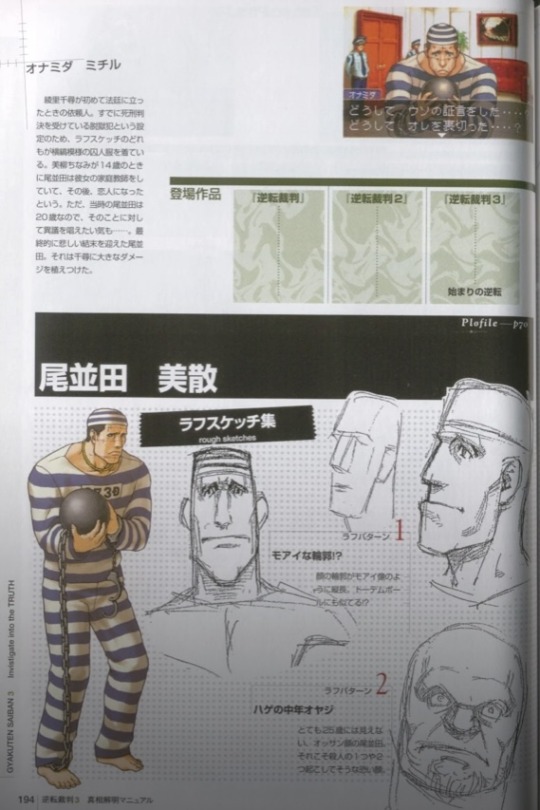
1 reminds me of fucking Stonehenge while 2 is literally just an angry grown man.

It seems like Terry Fawles was once Frankenstein inspired. Interesting idea to have the chain around his throat, like he's being choked by the guilt of his own actions. The yelling doodle is concerning, was he going to yell at Dahlia?(งᓀ‸ᓂ)ง

That empty eyed stare.... the corner one is something I would draw.
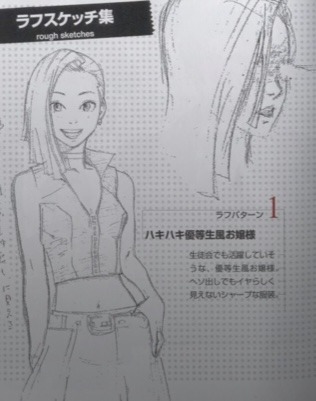
This Dahlia design looks like a young Valerie. What would the eye thing be, it looks like she's literally shooting lasers out of her eyes lmao
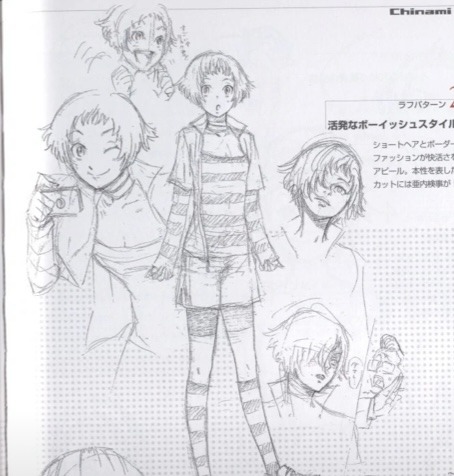
Her young age is so apparent (☍ ﹏⁰)。 The fact that she has a bandage on an eyebrow in one of them and bandages on her neck in another is so concerning for me. And she had an interest in photography!!! Was that what Terry was supposed to be tutoring her in??!! Capcom really should've gone with this design but they're cowards. Also Dahlia scaring Payne is funny. XD
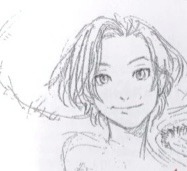
Dahlia rocking all masc

Dahlia looks like Maihiru Kozumi (°△°)

I’ve met so many teens that look like this I’m nauseous crying

Initially a scarf instead of a sweater! The blond one kind of looks like Irina Jelavić.
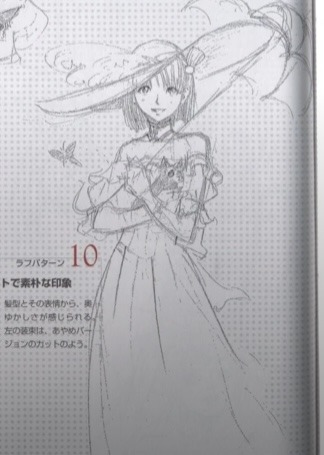
I thought this Dahlia was holding a cat but it looks more like a rat. Whatever that animal is, she deserves a pet for support and comfort. This is a cool design but it doesn't really suit Dahlia.

Literally so young I’m gonna puke. Her angry look reminds me of Matt Engarde for some reason

Bonus Iris page! Nice to see her more expressive, I love the drawing of her in the veil.
#gyakuten saiban#ace attorney#iris hawthorne#dahlia hawthorne#terry fawles#dahlia hawthorne deserves better#beta designs#noelle's rants
34 notes
·
View notes
Text
I HATE ACE ATTORNEY THREEEEEE

#some real stupid discourse on twt rn you already know my song and dance so i wont repeat it#BUT GOD MAY YOU DAMN THIS WRETCHED GAME MAY YOU CAST ITS IDEOLOGIES INTO THE PITS OF HELL WHERE IT BELONGS! GOODDDD FUCKING GRIEF!!!!!!#cuz some stupid fucking bitch said 'dahlia is too smart to let herself be groomed by terry' like Ohhh my god no words.#youre actually just dumb as fuck like seriously. YA ALLAH
2 notes
·
View notes